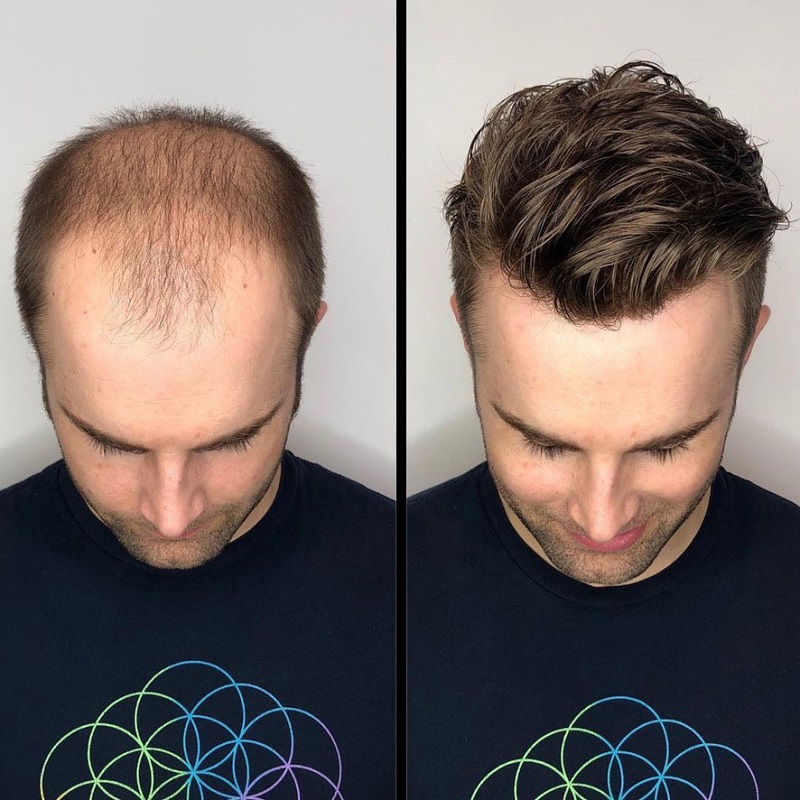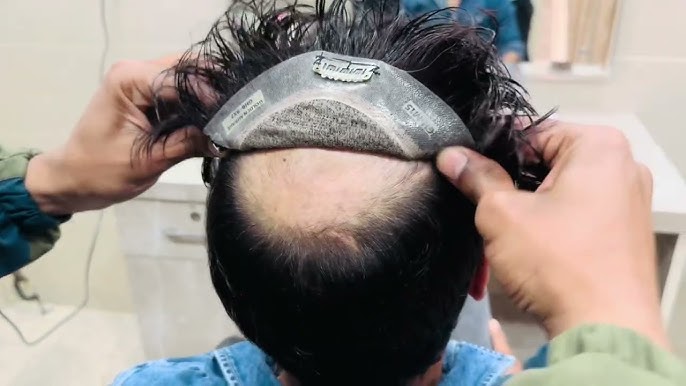Hair Fixing Service –
Hair Restoration & Get Confidence Again
Hair loss can take a serious toll on your self-esteem. Whether it’s due to genetics, stress, or other health conditions, thinning hair or bald spots can affect how you feel about yourself. That’s where hair fixing services come into play. These services provide a quick, non-invasive solution to hair loss that helps you restore not just your hair, but your confidence as well.
Let’s dive into everything you need to know about hair fixing services, from how they work to how to choose the right provider.
What is Hair Fixing?
Definition and Purpose
Hair fixing is a non-surgical method of attaching hairpieces to your existing hair or scalp to cover bald spots or areas with thinning hair. The main goal of hair fixing is to give you a fuller, natural-looking head of hair without undergoing surgery, such as a hair transplant.
How It Differs from Hair Transplants
While hair transplants involve surgically moving hair follicles from one part of the scalp to another, hair fixing uses external hair systems, like wigs, weaves, or bonded hair, to achieve similar results. The big advantage? It’s a non-invasive procedure that provides immediate results.

Why People Choose Hair Fixing Services
Common Hair Loss Problems
Hair loss is a widespread issue that can result from a variety of causes—genetics, aging, stress, hormonal imbalances, or medical treatments like chemotherapy. For many, hair fixing is the ideal solution to regain their look without drastic measures.
Who Can Benefit from Hair Fixing?
Anyone experiencing hair thinning, bald spots, or complete hair loss can benefit from hair fixing. It’s particularly popular among those who may not be ideal candidates for surgery or who are looking for a more affordable solution.
Types of Hair Fixing Solutions
Non-Surgical Options
Hair fixing offers various methods to suit different preferences and needs. Here are the most common non-surgical options:
Hair Bonding
Hair bonding involves using a special adhesive to attach a hair system to the scalp. It’s semi-permanent and requires regular maintenance every 4-6 weeks.
Hair Weaving
Hair weaving is the process of interweaving natural hair with a hairpiece. It’s particularly popular among women looking to add volume and length.
Hair Clipping
For those seeking a temporary fix, hair clipping systems can be attached to the existing hair using clips. This is perfect for special occasions or as a less permanent option.
How Hair Fixing Works
The Process Step-by-Step
Here’s how a typical hair fixing session goes:
Consultation
The process begins with a detailed consultation where the specialist assesses the extent of hair loss and suggests the best solution based on your needs and lifestyle.
Customization and Fitting
Next, a custom-made hair system is created to match your hair color, texture, and density. The specialist then carefully attaches it using the method chosen, whether bonding, weaving, or clipping.
Maintenance
Maintenance is key to keeping your hair looking great. Depending on the method used, you’ll need regular follow-up visits to ensure your hair system stays in place and looks natural.
Benefits of Hair Fixing Services
Instant Results
Unlike hair transplants or medications, which take months to show visible results, hair fixing offers an immediate transformation.
Non-Invasive Procedure
No needles, no surgery—just a safe, comfortable process that gets you the hair you want without any downtime.
Cost-Effective Solutions
Compared to hair transplants, hair fixing is a much more affordable option, making it accessible to a wider range of people.
How to Choose the Right Hair Fixing Service
What to Look for in a Provider
Selecting the right provider is essential for getting the best results. Here are key factors to consider:
Experience and Expertise
Make sure the provider has a track record of success in hair fixing. Look for reviews and ask for before-and-after photos of their previous clients.
Quality of Materials
High-quality hair systems made from natural hair will not only look better but will last longer.
Hair Fixing for Men vs. Women
Differences in Hair Loss Patterns
Men and women experience hair loss differently. Men tend to have receding hairlines or bald spots, while women usually face thinning across the entire scalp.
Gender-Specific Solutions
Hair fixing solutions are customized based on these differences to give the most natural look possible for each gender.
Cost of Hair Fixing Services
Factors Affecting the Price
Several factors influence the cost of hair fixing services:
Type of Hair Fixing Method
Hair bonding, weaving, and clipping all come at different price points depending on complexity and materials.
Location of the Clinic
Clinics in metropolitan areas may charge more compared to those in smaller towns.
How Long Do Hair Fixing Results Last?
Longevity of Different Methods
Depending on the type of hair system and how well it’s maintained, results can last anywhere from a few months to a few years.
Proper Maintenance Tips
To extend the life of your hair system, follow maintenance guidelines closely, including regular cleaning, detangling, and professional check-ups.
Hair Fixing vs. Other Hair Restoration Methods
Hair Transplantation
Hair transplantation is a surgical solution that moves your own hair follicles, while hair fixing relies on external hair systems.
Medication (e.g., Minoxidil, Finasteride)
Medications can help slow down hair loss but take time to show results and don’t work for everyone. Hair fixing offers immediate, reliable coverage.
Common Myths About Hair Fixing
Debunking Misconceptions
- Myth: Hair fixing looks fake.
Truth: With advanced techniques and high-quality hair systems, hair fixing can look completely natural. - Myth: Only older people need hair fixing.
Truth: Hair loss affects people of all ages, and hair fixing can benefit anyone dealing with it.
Aftercare and Maintenance
How to Care for Your Hair Fixing Solution
Proper aftercare is crucial for keeping your hair system in top shape.
Cleaning and Styling Tips
Clean your hair system as instructed by your provider and avoid harsh styling products that can damage it.
Success Stories: Real-Life Experiences
Many clients have experienced life-changing results with hair fixing. From regaining confidence to feeling more comfortable in social situations, the success stories speak for themselves.
Conclusion: Why Hair Fixing is Worth Considering
Hair fixing offers an affordable, non-invasive, and immediate solution to hair loss. Whether you’re dealing with thinning hair, bald spots, or complete hair loss, it’s an option worth exploring. With proper care and the right provider, you can enjoy a full, natural-looking head of hair that boosts your self-esteem and restores your confidence.
FAQs
- What is the difference between hair fixing and hair transplant?
Hair fixing is a non-surgical method, while hair transplants involve surgery. - How long does hair fixing last?
With proper care, hair fixing can last anywhere from a few months to several years. - Can hair fixing look natural?
Yes, high-quality hair systems are designed to look and feel natural. - Is hair fixing painful?
No, hair fixing is a completely painless procedure. - How much does hair fixing cost?
Costs vary depending on the method, materials, and location, but it’s generally more affordable than hair transplants.




